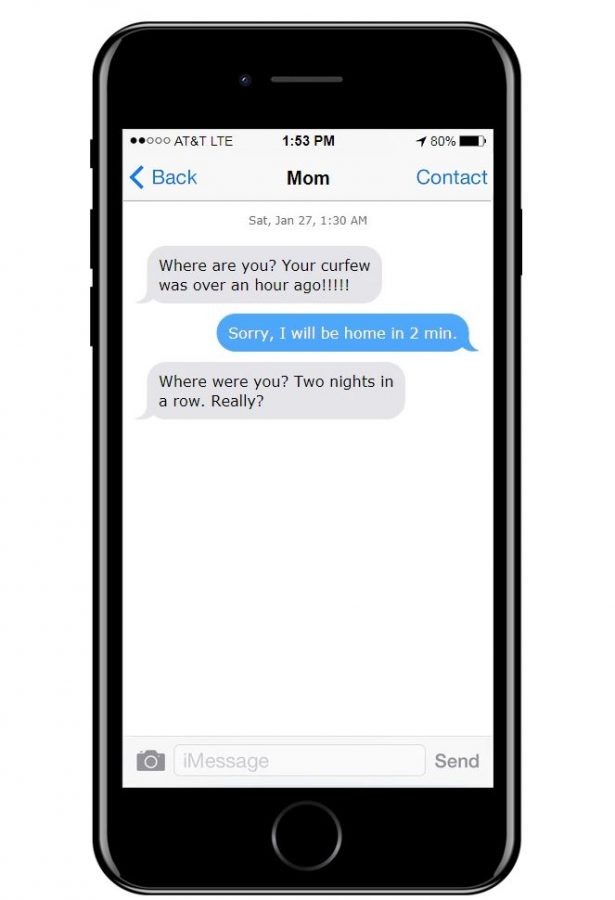Legal Curfews Matters To Some Families But Not To Others
February 12, 2018
Anthony Klein, sophomore got in big trouble when he came home past curfew.
“I have gotten home later and it was not good. I wasn’t able to drive for about two or three weeks and I just got yelled at really bad,” Klein said.
When most teens get to the age where they can drive, curfews become more relevant in their lives. Weeknight or weekend, curfews help keep students on track.
Whether you have a curfew or not, there is a legal curfew that everyone must follow, but not everyone knows about. According to the St Louis County, Missouri Ordinance Guidebook the curfew for unsupervised minors under the age of 17 is 11:00 p.m. to 6:00 a.m. on Sunday through Thursday, and 12:00 a.m. to 6:00 a.m. on Fridays and Saturdays. The curfew hours do not apply if a minor is with their parent or guardian, or where the minor is on an emergency errand or legitimate business directed by his or her parent.
“On the weekends my curfew is like 1:00 and on school nights it’s like 10:30,” Klein said.
A majority of teenagers have a curfew past 12:00 a.m. and don’t realize that it is against the law for them to be out. From a poll conducted on a group of the juniors, only 9 of 48 have their curfews are correlated with the legal curfew. The legal curfew comes to concern when teenagers are worried they are going to miss curfew, so they speed to get home which can lead to accidents and getting pulled over. Now parents may take more precautions when it comes to their child’s curfew.
Senior Lauren Hanser’s parents even have a tracking app to know where she is at all times.
“I don’t like it because you can’t do anything because they know everything and when they track you have to follow the rules,” Hanser said.
Her curfew is 12:00 a.m. on weekends, and if she gets home later than that she will have to be home earlier the next day.
For sophomore Lindsey Ormant, her curfew depends on how tired her parents are, because they want her home before they go to sleep. Ormant’s parents go to bed pretty early and they like her home before they go to sleep, so her curfew is earlier. Which means a curfew between 10:30-11:00.
“I don’t think I’ve come home later than that because I’m kind of scared of my parents. I think they would just get really upset with me and if it was just constantly than they would probably ground me,” Ormant said.
For sophomore Jacob Stone his curfew depends on who he is with. “When I’m with the boys probably midnight, Stone said.”
If Stone plans on staying out later than that, he will usually just spend the night out.
Stone explained if he would continuously come home past his curfew there would be some repercussions and he would probably get his car taken away, but so far he has not been home past curfew.
“I don’t play around like that,” Stone said.
School Resource Officer Mark Caswell feels curfews are necessary because it is good for parents to have boundaries other than the legal curfew.
“For someone under the age of 17 there is no need for them to be out [past the legal curfew] unless of course they’re working or coming home from an event sanctioned by their parents,” Caswell said.
Caswell explains that if a teen was caught out past curfew the consequences would depend on where they were coming from. If they’re coming from a school dance or something like that they will probably just be told to go home. If they are just out running around then the parents will be contacted to come get their child and then they are referred to the family court.
“The family court will touch base with the family and make sure there is nothing going on with the family that may create an unsafe environment for the child,” Caswell said.

